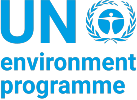Interview Series #5
Takuya Kitatsuji, Executive Director, Global Environment Centre Foundation:
"Addressing environmental issues involves reviewing our own lifestyle"
ーーCould you tell us about the history of cooperation between the IETC and GEC?
The Global Environment Centre Foundation (GEC) was founded by Osaka City, Osaka Prefecture, economic associations, and other entities in the same year as the UNEP-IETC in 1992 to assist the IETC’s activities in Japan.
GEC has worked with the IETC for the past 30 years. We have gained recognition for our engagement with ground-breaking projects aimed at assisting developing countries, such as those involving sharing information about the transfer of advanced environmental technology with people around the world.
GEC will continue to cooperate with the IETC to ensure that we hand over our beautiful planet to the next generation. To this end, we will work closely with UNEP Sustainability Action and other stakeholders toward achieving the SDGs and realizing a decarbonized society.
ーーCould you share any issues you have faced, successful initiatives, and/or future challenges related to eliminating waste?
Needless to say, lifestyle changes since the Industrial Revolution have created a society of mass consumption and disposal, leading to critical environmental issues such as global warming and waste pollution that require immediate action.
Thankfully, people are becoming more and more aware of environmental issues, and this is starting to bear fruit. One great example of this is Japan’s waste reduction efforts.
For example, even though the population of Osaka City has been slightly increasing, the annual amount of waste produced has decreased by about 60% from 2.17 million tons in FY1991 to 860,000 tons in FY2020 thanks to citizens’ 3R efforts.
Local communities play an essential role in this respect. For instance, town associations ensure that paper waste and plastic bottles are separated properly and use the profit generated from recycling the waste for community welfare activities. This is a typical example of an initiative that contributes to achieving the SDGs through integrating environment (waste reduction), economy (profit generated from recycling), and society (promotion of community development and welfare activities).
Addressing environmental issues involves reviewing our own lifestyle. I think these successful practices in waste reduction at the everyday level will serve as a helpful starting point for addressing larger environmental issues such as global warming.
ーーWhat are your expectations for IETC going forward?
In terms of plastic waste control, it was decided in the United Nations Environmental Assembly of March 2022 to establish an intergovernmental negotiating committee for discussing the development of a legally binding global agreement on plastic pollution. Negotiations are scheduled to begin in November 2022 with the aim of completing the necessary work by 2024. Therefore, I think we’re at a very important crossroads now.
The IETC has launched a new program called UNEP Sustainability Action in an effort to partner with global companies.It is essential that we cooperate closely with companies as well as consumers and citizens to tackle the issue of plastic waste.The IETC has worked with GEC in a variety of plastic-related projects, such as the UNEP Symposium on Plastic Waste Problems that we hosted in conjunction with the G20 Osaka Summit 2019.
As for an international convention on plastic pollution, Expo 2025 Osaka, Kansai, Japan will be held in 2025 centered around the theme of the SDGs. Building on the achievements of the G20 Osaka Blue Ocean Vision, I hope the IETC can play a central role in bringing stakeholders together to raise global environmental awareness from Japan and Osaka. Of course, GEC is determined to contribute as well.






